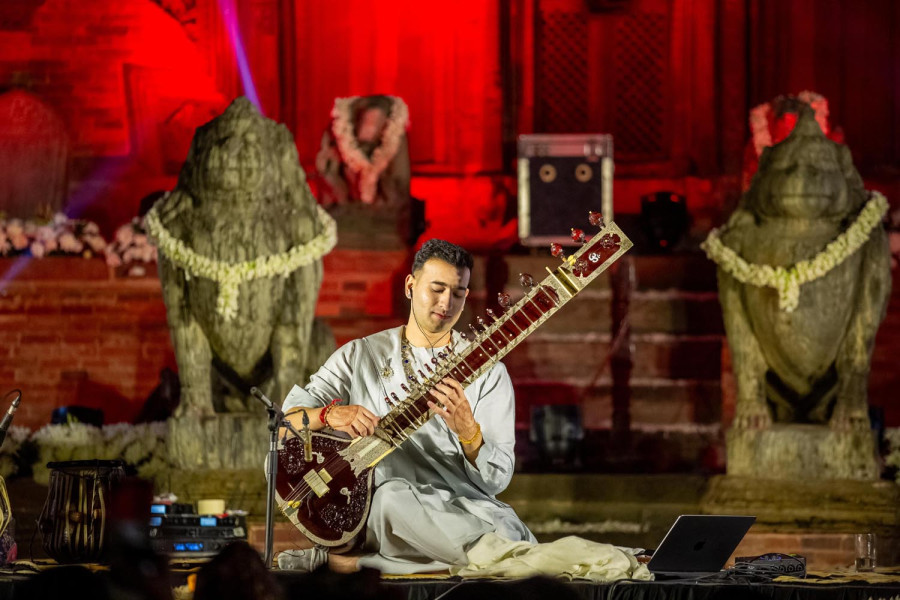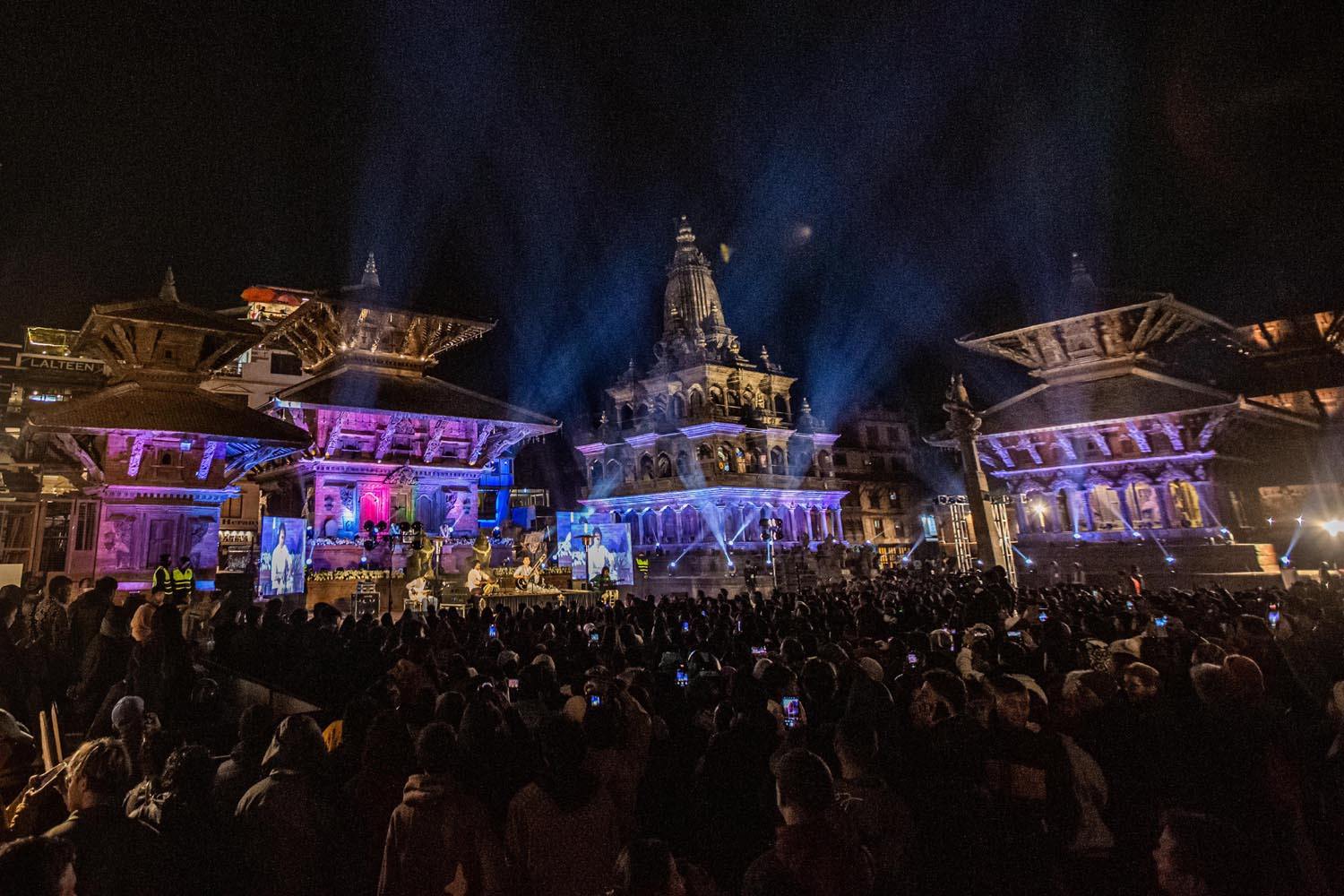Culture & Lifestyle
Soothing sitar strings
Indian sitarist, music producer, and mental health advocate Rishab Rikhiram Sharma mesmerised the audience at Patan Durbar Square with his performance.
Sanskriti Pokharel
The historic Patan Durbar Square became a beautiful stage on Friday as Indian sitarist, music producer, and mental health advocate Rishab Rikhiram Sharma performed live. The UNESCO World Heritage site, already known for its architectural grandeur, looked beautiful under a carefully curated display of lights. The temples were bathed in pink, blue, red and green light hues.
The event titled ‘Rishab Rikhiram Sharma Live in Nepal’ was hosted by Sadichha Shrestha. She thanked the mayor of Lalitpur, Chiri Babu Maharjan, for providing Patan Durbar Square as the venue.
Rehan Shrestha and Esparsh Sarawagi were the two organisers who brought Sharma to Nepal.
Addressing the audience, Rehan Shrestha, digital content creator, model and fashion designer, shared, "I’ve always been a big fan of the series ‘Devon Ke Dev...Mahadev.’ Lord Shiva plays the Veena in one episode, leaving Sati Devi mesmerised. I was captivated by the music playing in that scene. I searched it, and it led me to discover Rishab Rikhiram Sharma and his composition ‘Tandavam’. I remember thinking, I must bring this incredible artist to Nepal.”
Sharma became the first sitarist to receive an invitation from US President Joe Biden to perform a solo concert at the White House.
As Sharma took the stage before Charnarayan Mandir, he began with a calming breathwork exercise. A silence descended over Durbar Square, setting the perfect tone for the musical journey about to unfold.
He then played the alaap, a slow and meditative introduction to the raga. The music had a meditative quality. Many in the audience were visibly moved, their faces reflecting peace and calm.

“It felt like my tired soul was being healed,” said one attendee. “The music wasn’t just something to hear—it was something to feel.”
Midway through his performance, Sharma recounted, “While practising for this concert in my room, sitar slipped from my hands, and the gourd broke. I started crying and called my parents. My father, who hadn’t planned to come to Nepal, flew here immediately and fixed it within an hour, making this concert possible. Without our parents, we are nothing.”
His story created a deeper connection with the audience.
The mood of the evening took a lively turn when Sharma moved on to perform iconic Bollywood melodies such as ‘Zara Zara’, ‘Tumi Dekho Na’, and ‘Kal Ho Na Ho’. As someone who loves Bollywood music, I felt a surge of joy. It wasn’t just me—many in the audience, clearly Bollywood enthusiasts, were equally thrilled.
The familiar tunes brought a wave of nostalgia and excitement. It created an atmosphere of shared celebration. It was a beautiful moment that mirrored the power of music to transcend boundaries, connecting people through melodies that speak directly to the heart.
The culmination of the evening was nothing short of magical. Sharma stood up and delivered a performance called ‘Jata Tavi Galaj’. He invited the audience to join in. The crowd rose from their seats, and their voices united in a chorus that echoed through the square.
As I left Durbar Square, still captivated by the night’s event, I felt immense gratitude for witnessing such a beautiful confluence of artistry, culture, and healing. Sharma’s performance was more than just a concert; it was an experience that resonated deeply within the soul.




 9.89°C Kathmandu
9.89°C Kathmandu

.jpg&w=200&height=120)













